Most people keep up with their car's oil changes and tune-ups. But they may not realize that their car's cooling system also needs regular maintenance. Freon is a key component of the cooling system, and it helps keep the engine cool and working effectively. You may be wondering how long freon can keep your car's AC system at its optimal functioning level. We did our research, and this is what we found out.
Car freon is designed to last the lifetime of a vehicle. It is only regassed if the AC stops blowing cold air. As long as your vehicle's climate system continues to cool, there is no need to change your vehicle's freon. Usually, freon top-off is done when there is damage, such as a leak in your car's AC system.
If you're interested in knowing more about freon in cars, read on to learn more. We will discuss related questions, such as how to check for freon leakage. You'll also find a step-by-step guide on how to recharge your car's AC system.
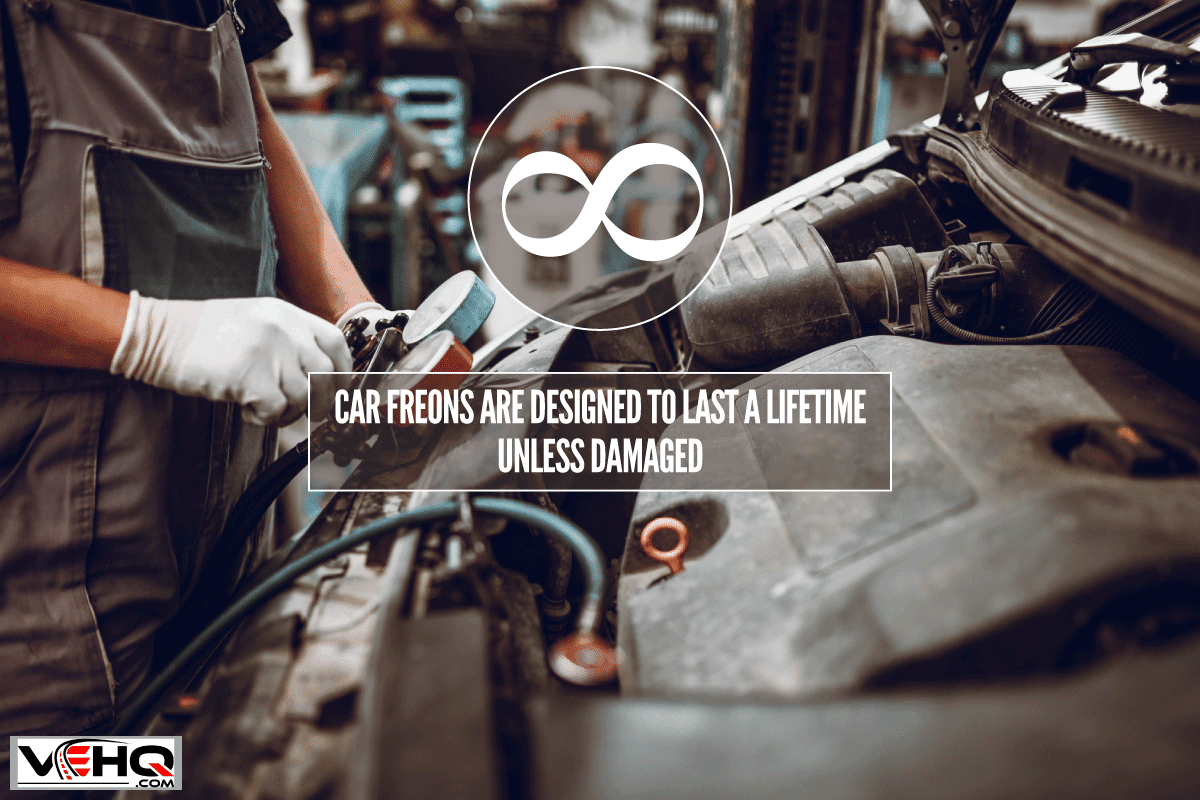
How Long Does Freon Last in a Car?
Your car's freon will generally last for a long time. Since it is not something that's consumed like oil or gas, there is no need to top-off or refill it unless there is a leak.
Freon is the trading name of one of the haloalkane refrigerants manufactured by Dupont and other companies. When used as a refrigerant, it helps to cool the air by absorbing heat from the surrounding atmosphere.
This process is known as the "refrigeration effect." As the freon cools the air, it also evaporates, creating a cooling effect on the surface of the coil it comes into contact with.
Many mechanics believe that freon lasts indefinitely in a car's AC system, but this is not the case. Freon will eventually leak out of a car's AC system, and when it does, the system will stop working properly. The only way to fix this problem is to replace the freon with fresh refrigerant.
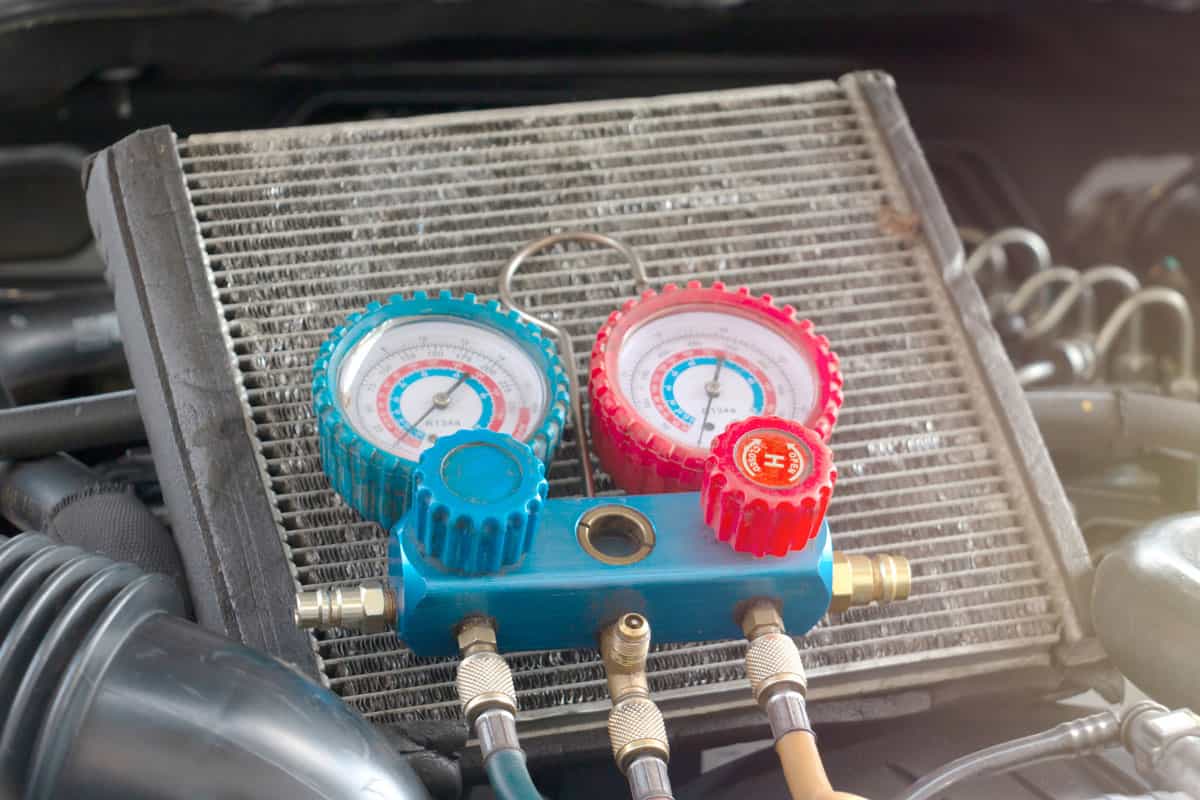
Factors Affecting Freon Maintenance
Your car's freon is tightly sealed and can last for the lifetime of your vehicle. However, the following factors will have an effect on your car's AC system:
Temperature
When temperatures are high, your AC will exert more effort. The temperature outside can affect how quickly other parts of your AC system wear out.
Type of car
Usually, older cars may have freon leaks that are immediately obvious.
How Often the Car is Driven
If the car is used daily and has racked up thousands of miles, it is possible that there are already a few leaks in your AC system due to wear and tear.
Signs That Your Car Needs a Freon Replacement
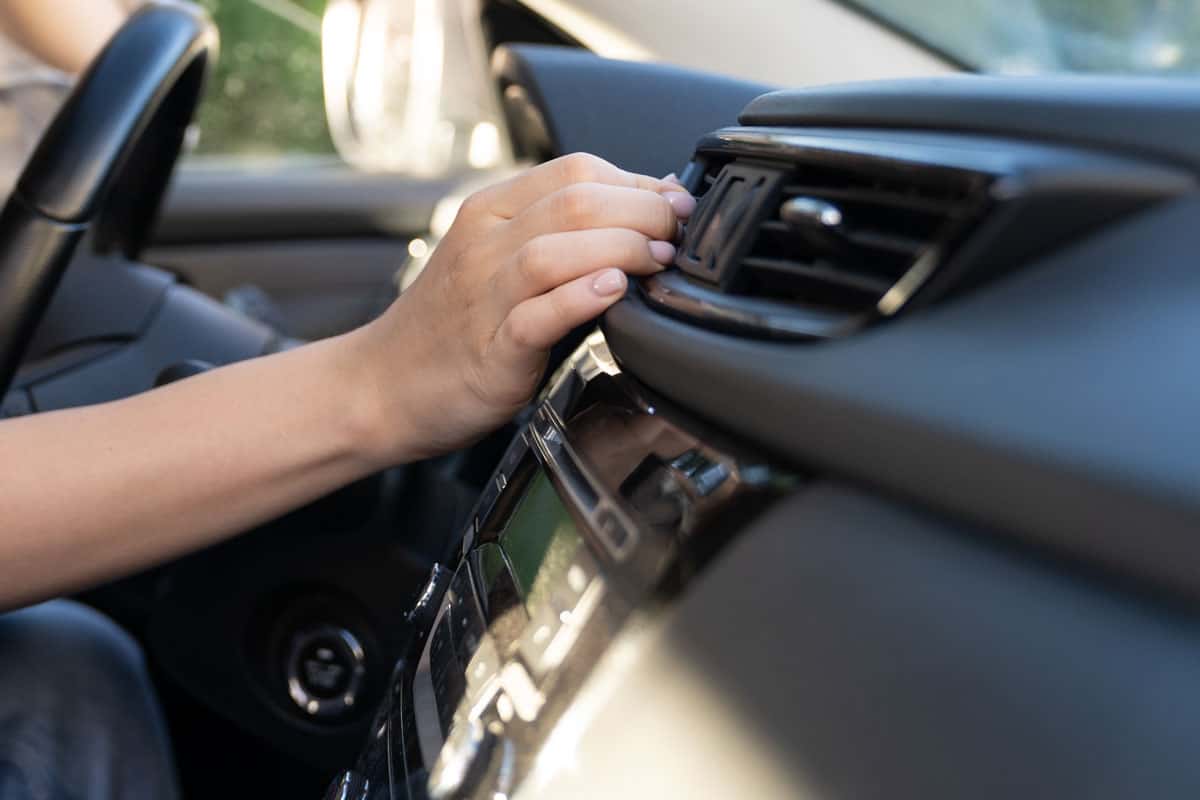
Over time, freon can break down or leak out and need to be replaced. There are a few signs that you can watch for that will indicate that your car's AC system needs a freon replacement. Below are some of the most common and easiest symptoms to spot.
- Air coming from the vents is not as cold as it used to be.
- Unusual noises coming from the AC unit itself.
- Refrigerant leaks
- A/C clutch failing to engage.
If you notice these signs, you should take your car in to be serviced as soon as possible.
A freon replacement is a relatively simple and inexpensive fix, but it's important to do it before more serious damage occurs to your AC system.
How To Replace Your Car's Refrigerant
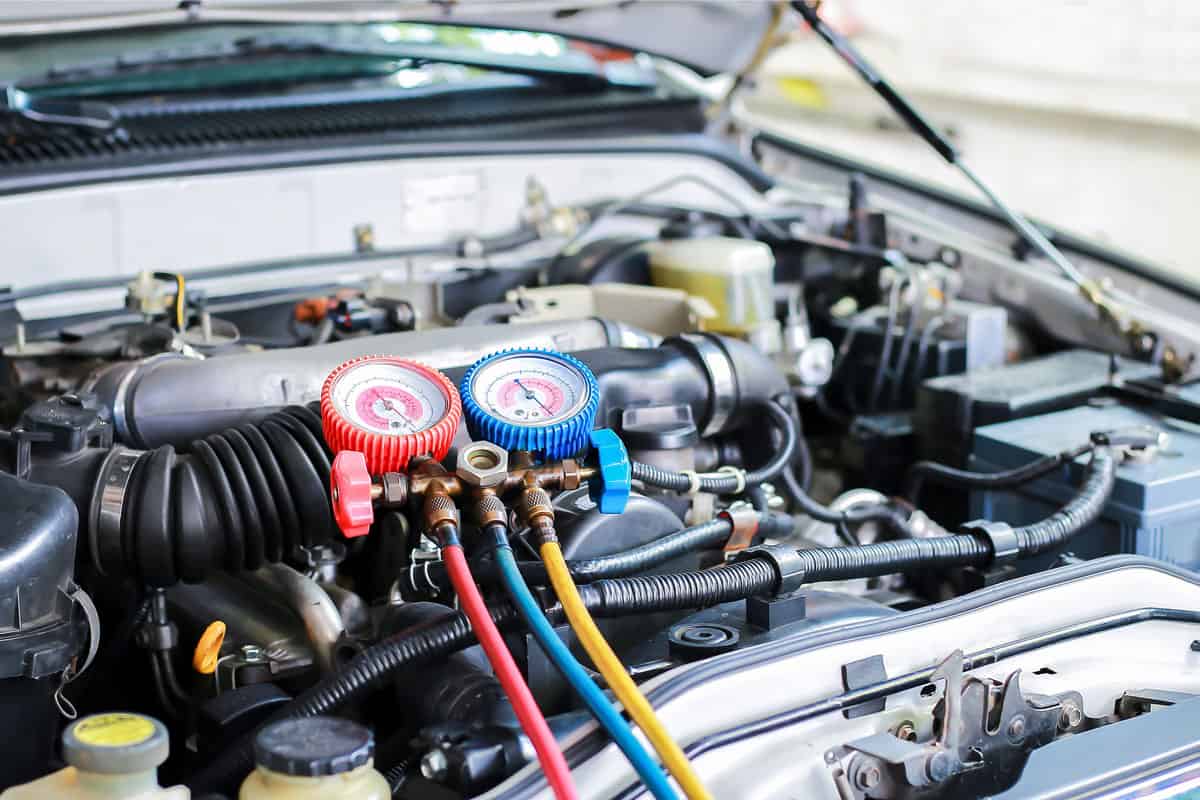
Refilling your car's AC refrigerant can be a DIY project. But if your entire AC system is a problem, you should have a mechanic take a look at it.
Step 1: Prepare Your Equipment and Refrigerant
Prepare your Refrigerant Gauge Kit Tools. This is a small device that attaches to your AC system and helps to measure the amount of freon in the system.
Check out this Orion Motor Tech AC Gauges on Amazon
Step 2: Check Your Freon Level
Raise the hood of your car and locate the low-pressure service port. This is located between the compressor and the evaporator. You can locate it easily by finding the larger of the two AC lines. Usually, the cap on the valve of the low-pressure service port will have an "L" on it.
Start your car and turn on the AC. Maximize your car's AC system. Run a low-pressure service port AC diagnostic. The gauge attached to the hose will help you find out how much freon is in your AC unit.
If the gauge shows that your system has low or no freon, you should recharge your car's AC system.
[Note: If your gauge shows refrigerant levels in the red zone, it means you have too much freon in your system. This requires an entirely different service.]
Step 3: Set Up for the Addition of Freon
Disconnect the coupler of your gauge kit from the low-pressure service port. Shake the can of refrigerant for a few seconds before connecting it to the gauge.
Start by holding the can upright. Never point the can upside down because the freon will enter your system in a gas state and not in a liquid form. Keep the can upright as you squeeze and hold the trigger to release the freon.
Alternate between upright and down, shaking the can every few seconds. After about 10 seconds, release the trigger and hold the can in an upright position.
The needle should be moving from the low zone to the green zone. If the needle is not yet in the green zone, hold the can upright again. Once the needle is in the green zone, you can enjoy your recharged AC system.
Note: It can take a few minutes for the freon to move through the entire system so that you get an accurate reading. To ensure that the reading will be accurate, you should drive your car for a few before taking another reading.
How To Properly Maintain Your Car's AC System?
There are a few things you can do to keep your car's AC system in good shape:
- Check the level of refrigerant if you are already experiencing diminished performance in your AC system, or if there is a freon leak
- Top off your refrigerant only when necessary.
- Have your AC system serviced by a mechanic every two years or so to catch any potential problems before they become too serious.
- Always use the correct type of refrigerant in your car. Remember that using the wrong kind can damage the system and lead to expensive repairs.
Frequently Asked Questions
How Do I Know That Refrigerant is Leaking From My Car?
One way you'll know that your car's refrigerant is leaking is by the appearance of fluid under your car. If you notice a bright green, oily substance pooling beneath your car, it's likely that your car is leaking refrigerant.
Another way to tell that your car's refrigerant is leaking is by the presence of a sweet smell coming from your car. This is because most refrigerants contain a sweet-smelling chemical called freon.
If you notice either of these signs, it's important to take your car to a mechanic as soon as possible to have it repaired. Leaking refrigerant can cause damage to your car's engine and may even be harmful to the environment.
Check out this Freon Leak Detector Halogen Refrigerant tester on Amazon
Will Freon Soon Be Phased Out Due to Environmental Effects?
Freon is a refrigerant gas that is used in air conditioners and other cooling appliances. It is also a potent greenhouse gas, and its release into the atmosphere has been linked to climate change. As a result, freon is coming under increasing scrutiny.
Since the Clean Air Act of 1990, efforts have been made to replace freon with more environmentally friendly alternatives. However, freon is still widely used, and it may be some time before it is completely phased out. In the meantime, efforts to reduce its environmental impact will continue.
Freon 22, also known as R-22, is the most commonly used refrigerant for car AC. Puron refrigerant is also used for cars made since 2010. It is also known as R-410A, Suva, Forane, and EcoFluor. In addition to cars, these can also be used for refrigerators, HVAC systems, and ACs.
Can I Use a Different Refrigerant in my Car?
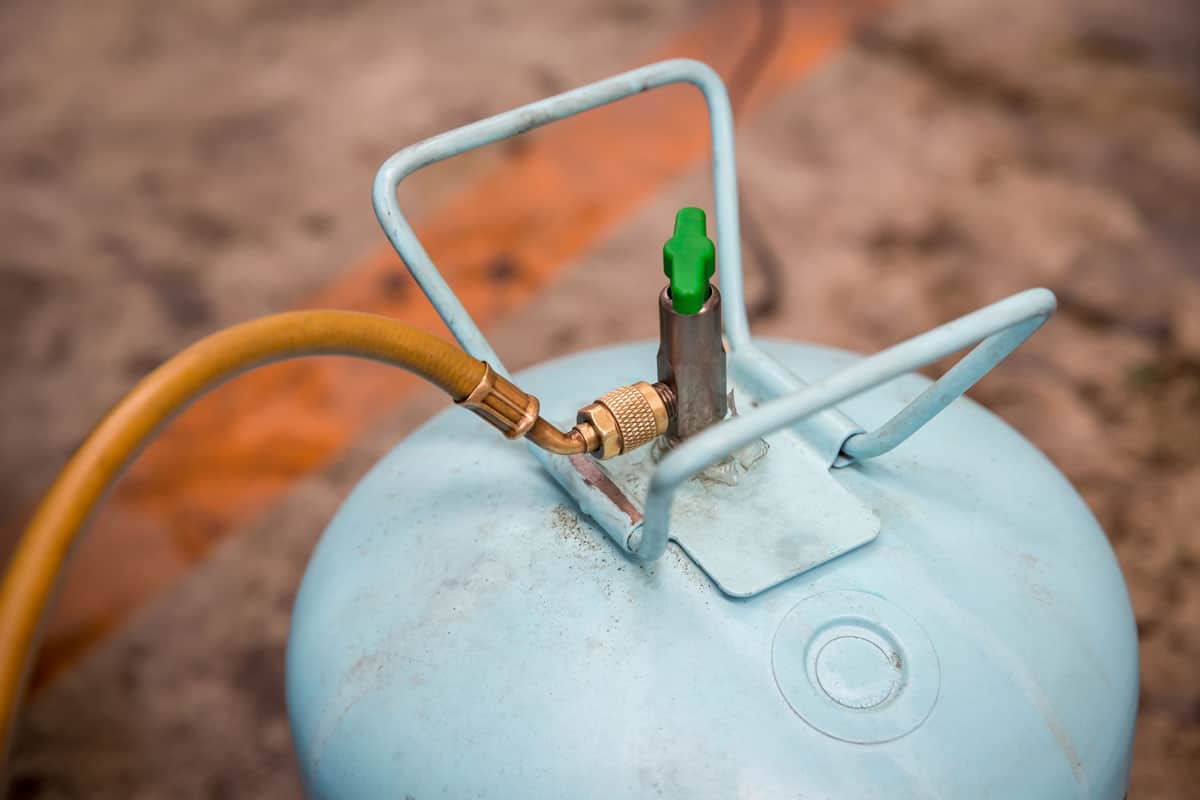
You can't simply switch refrigerants, because they have different chemical properties. For instance, R410-A operates at a higher pressure, so you shouldn't use it in an R-22 system. You can, however, convert your current system, but it the process get costly as you will need expensive equipment and a professional mechanic.
Does Car Insurance Cover Car Air Conditioning Maintenance?
Generally speaking, if the A/C fails as a result of impact damage—such as a flying object hitting the condenser, or if you run over something that damages the system—then your insurance company will cover the repairs.
However, if the failure is due to wear and tear, the claim will be denied. So if your A/C has stopped working, it's important to check with your insurance agent to see if you're covered before making any decisions about repairs.
Final Thoughts
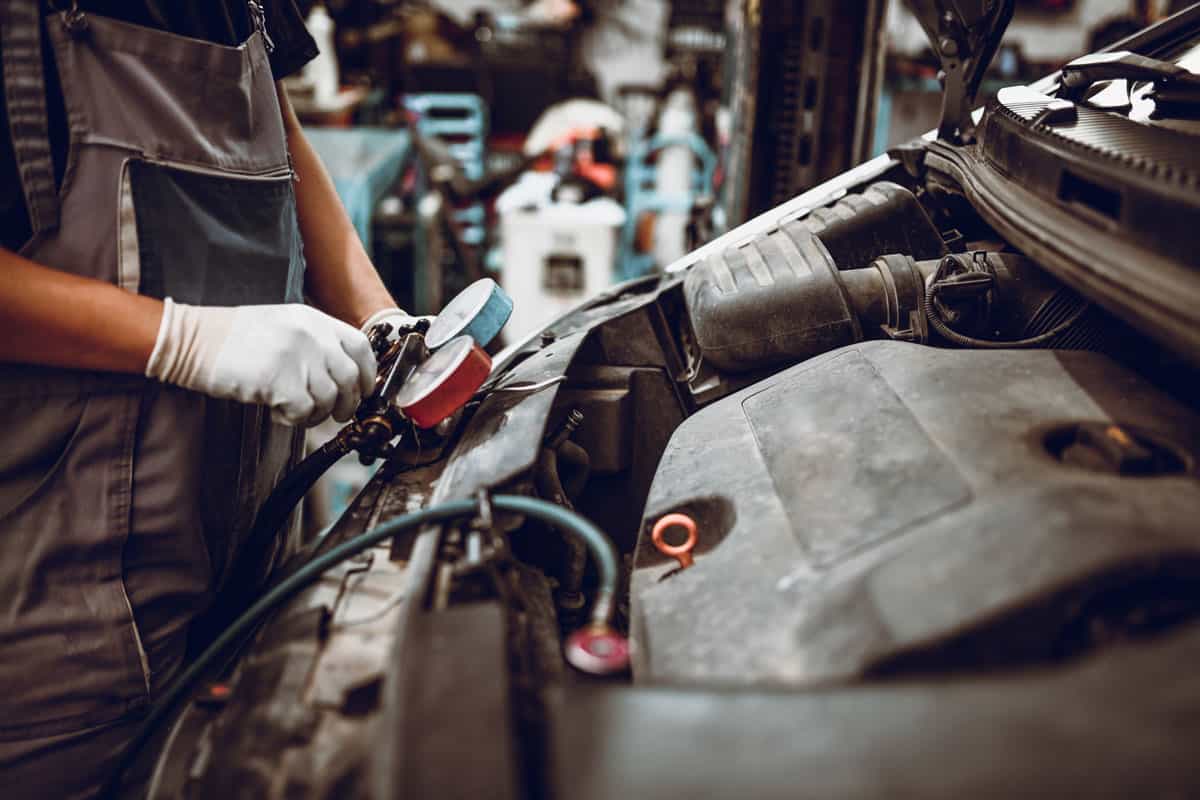
Maintaining your car's AC system will keep it running smoothly. By taking note of the information in this article, you can help ensure that your car's AC system stays in good working order for years to come.
Have you ever had an issue with your car's AC system? Share your story in the comments below!
Browse through these articles for more useful information:
Air Conditioner Only Works When Driving – What Could Be Wrong?


